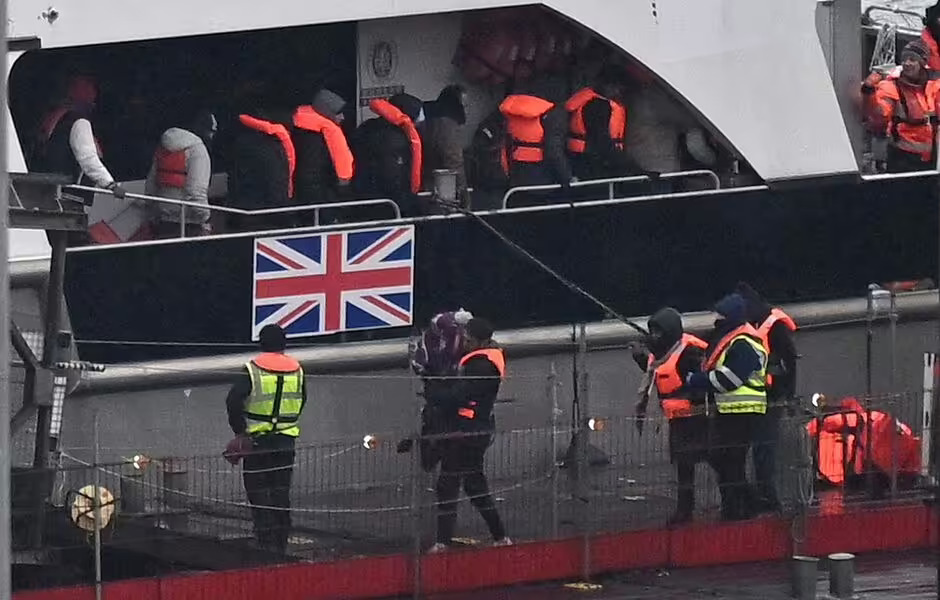A record number of migrants have made the dangerous journey across the English Channel in small boats so far in 2025. Government figures released by the Home Office show that over 8,000 people have arrived in the UK between January and April, making it the highest number of crossings ever recorded during the first four months of the year.
On Saturday alone, 11 small boats carrying a total of 656 migrants reached the UK’s shores, marking the single busiest day for arrivals this year. Additional boats were also spotted making the journey on Sunday, adding to the growing total. According to provisional data, 8,064 people have arrived via the Channel so far this year. This marks a significant rise of 46% compared to the same period in 2024, and a dramatic 65% increase compared to 2023.
The rise in crossings comes despite ongoing efforts by both UK and French authorities to prevent such journeys. On Saturday, the French coastguard rescued 50 people at sea after receiving distress calls from several vessels. Among them, 28 migrants were brought back to Calais after their boat ran into trouble, while 19 others were rescued from another vessel. In both cases, other passengers onboard refused help and chose to continue their journey towards the UK. Additionally, three individuals from a separate boat were taken to Boulogne-sur-Mer, but more passengers again declined assistance and pushed ahead.
Recent data highlights a notable shift in the nationalities of those attempting the journey. This year, Eritreans represent the largest group, accounting for nearly 20% of total arrivals. This is almost triple the number of Eritrean arrivals compared to last year, suggesting changing migration patterns and possibly worsening conditions in their country of origin.
In response to the growing number of arrivals, the UK Government has vowed to intensify its efforts to dismantle the criminal networks responsible for human smuggling. A spokesperson for the Home Office described the crossings as dangerous and life-threatening, blaming people-smuggling gangs for exploiting vulnerable individuals in exchange for high payments. The Government insists that it is pursuing a comprehensive strategy, including tougher enforcement powers, faster deportation processes, and stricter action against illegal employment—measures aimed at reducing the appeal of the UK as a destination for irregular migration.
However, the issue remains politically charged. Shadow Home Secretary Chris Philp criticised Labour’s handling of the situation, accusing party leader Keir Starmer of failing to deliver on promises to tackle illegal crossings. Philp argued that Labour has lost control of the UK’s borders, allowing smuggling gangs to operate freely while British taxpayers cover the costs. He also stressed that the crossings are unnecessary, pointing out that France is considered a safe country, making asylum claims in the UK unjustified under international law.
As the numbers continue to rise, pressure is mounting on both the Government and opposition to take meaningful action to address the root causes of migration and ensure safe, legal alternatives for those seeking refuge.

